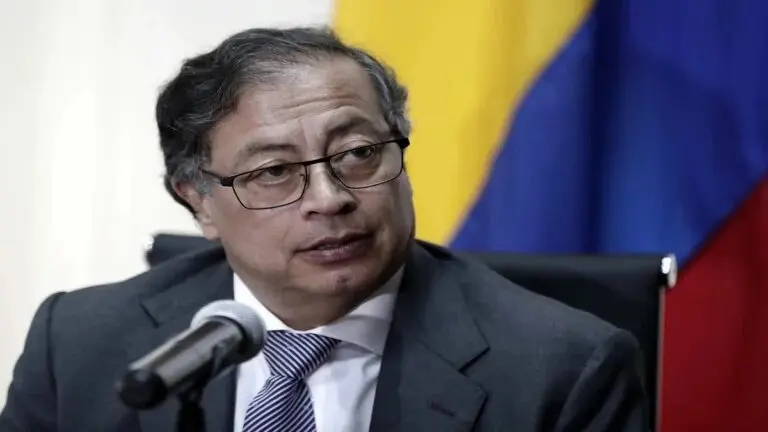Petro Denounces Enormous Political Pressure on Colombian Judiciary Ahead of Uribe Trial Verdict

Petro denounces enormous political pressure on Colombian judiciary ahead of Uribe verdict. Photo:EFE.
July 22, 2025 Hour: 10:21 pm
Colombian President Gustavo Petro warns of intense attempts to influence the judiciary as the historic trial of ex-president Álvaro Uribe nears a decisive verdict on allegations of witness tampering and bribery.
Related:
President Petro Denounces Foreign Criminal Organizations Threatening Colombia’s Sovereignty
In the final days before the landmark ruling on former Colombian President Álvaro Uribe, incumbent President Gustavo Petro has openly denounced the “enormous” pressures being exerted on the country’s judicial system. As the July 28 verdict approaches, concerns grow over the possibility that political interests aim to undermine judicial impartiality in a case that exposes deep-rooted issues of corruption and impunity within Colombia’s political class.
The case against Uribe, who governed Colombia between 2002 and 2010, marks the first time a former president faces criminal prosecution in the nation’s history. He stands accused of bribing and intimidating former paramilitary members to alter testimonies implicating him in ties with these armed groups during his administration. Left-wing Senator Iván Cepeda, a vocal critic of Uribe, has played a key role in bringing this case forward.
After more than a decade of legal proceedings, the trial has reached a critical stage. The Prosecutor’s Office deems the evidence “conclusive,” calling on presiding Judge Sandra Heredia to issue a conviction. Yet, the process unfolds amid a fierce political polarization that threatens democratic institutions and the rule of law.
On social media, President Petro underscored the fundamental principle that judges must operate with “complete impartiality, independence, and objectivity,” free from external coercion. He reaffirmed his commitment to respect and protect the judiciary’s decision, whatever the outcome may be.
This public stance comes against a backdrop of escalating efforts to influence Judge Heredia and shape the judicial outcome. Petro alluded specifically to a recent op-ed denouncing attempts to sway the court, signaling the serious stakes involved.
Se que el expresidente Uribe Vélez, quiere mis pronunciamientos sobre su actuaciones y mis anteriores debates como congresista.
— Gustavo Petro (@petrogustavo) July 22, 2025
Pero no lo puedo hacer ahora. Cuando decisiones judiciales, que debo respetar y no influir para nada, se van a tomar.
Otro día más adelante, quizás… https://t.co/F4xz9HYavx
The text reads: I know that former President Uribe Vélez wants my statements about his actions and my previous debates as a congressman.
But I cannot do it now. Judicial decisions, which I must respect and must not influence in any way, are about to be made.
Maybe another day, later on, I will write a book about my debates.
For now, I keep my silence. Judges should not be pressured.
Petro’s government, Colombia’s first left-wing administration, has ignited fierce opposition from entrenched conservative factions closely linked to Uribe’s political network. The trial is not merely a judicial proceeding but a broader contest over Colombia’s democratic future and its efforts toward truth, justice, and reconciliation.
Critics argue that attempts to delegitimize the trial through propaganda and pressure on the judiciary are strategies to preserve a corrupt status quo that shields those who have historically benefited from violence and paramilitary collusion.
This unfolding chapter in Colombia reflects a wider Latin American struggle against impunity and political interference in justice systems. The courage of judicial actors and political leaders like Gustavo Petro is crucial to dismantling cycles of repression that have plagued the region.
Author: YCL
Source: TeleSUR






